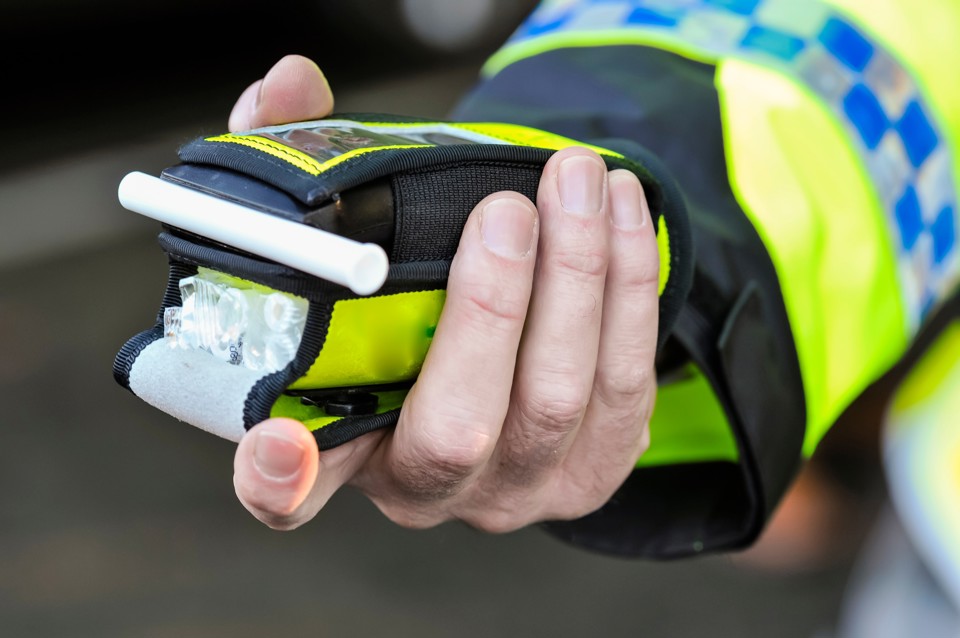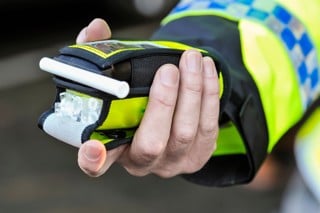Vehicles should be fitted with ‘alcolocks’ to reduce drink-driving, a new report from the Parliamentary Advisory Council for Transport Safety (PACTS) suggests.
The alcohol interlocks, which require the driver to blow into a breath-testing instrument connected to the vehicle ignition system before the vehicle will start, should be introduced as soon as possible for drivers convicted of drink driving, says PACTS.
The report – Locking out the drink driver – finds that one on six drink driving offences is committed by a reoffender.
The current reliance on media campaigns, penalties, driving bans and police enforcement is enough to deter reoffending, claims PACTS. Nor is it enough to bring down the number of deaths from drink driving – 240 each year, which has not changed since 2010.
David Davies, executive director of PACTS, said: “We were shocked to find that one in six drink driving offences is committed by someone previously convicted.
“Since 2010, this amounts to over 100,000 offences – each of which is highly dangerous to the driver and other road users. Clearly the current system is not adequate.”
The PACTS report looks at the use of alcohol interlocks around the world and finds that they are significantly more effective than licence disqualification at reducing reoffending.
If combined with rehabilitation courses, the benefits can last long after the device is removed, it says.
The report recommends that the courts are given powers to offer or mandate alcohol interlocks for as many drink drivers.
Offenders would be responsible for the costs of the interlock programme – typically around £1,000 a year.
“A number of other countries have introduced alcohol interlocks to prevent repeat drink driving and to bring down the number of deaths and injuries that result,” said Davies.
“Alcohol interlocks have proved highly effective. PACTS is calling on the Government to give UK courts the powers to impose them without delay.”
Reoffending is a major concern. Since 2010, 32,025 people committed a drink drive offence with a previous drink/drug drive offence on their record.
Meanwhile, eight people were convicted of causing death by careless driving when unfit through drink/with alcohol level above the limit with a previous drink/drug offence on their record.
Dräger Safety UK welcomed today’s publication of the PACTS report into the use of interlock devices.
Graham Hurst, marketing manager Impairment at Dräger, said: “We believe that the time is right to try something different to reduce these avoidable fatalites.
“The experience of our colleagues in countries which already incorporate interlock devices into rehabiliaton programmes is that they have a clear impact on deterring drink driving.”
YouGov research, commissioned by Dräger last year, showed that there is public appetite for interlock devices to be fitted to offenders vehicles before their driving licence is returned, particularly for repeat offenders.
More than four in five respondents (83%) said they would support this and more than half (56%) agreed they should be introduced for first time offenders.
“This public endorsement and the publication of today’s report, suggests that there is a recognition that we need to take action to stop persistent offenders putting other road users at risk,” added Hurst.
Road safety charity IAM RoadSmart also welcomed the PACTS report. Neil Greig, IAM RoadSmart director of policy and research said: “The evidence is clear. Nearly all motorists want new cars fitted with alcolocks to help stop the daily carnage on UK roads from drink driving and this latest PACTS report is even further endorsement.”
The PACTS report mirrors recent research by IAM RoadSmart of over 2,000 motorists, which reveals overwhelming support from motorists to fit alcolocks in all new cars, with 90% of motorists supporting all new cars having built-in technology that immobilises the vehicle if the driver is over the limit.
From 2022 all new cars sold in Europe will be ‘alcolock enabled’ but it is up to the Government to decide how they will be used. IAM RoadSmart has previously stated they will be a useful tool to get drink drive offenders back to safer driving after a ban.






















Login to comment
Comments
No comments have been made yet.